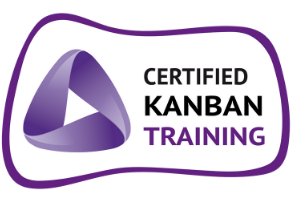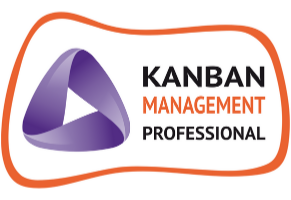Description
Kanban is a management method that improves the provision of all kinds of services (in and outside IT). In the process, improvements are accelerated and the business is continuously developed in small steps to provide the services to the purpose and to be adaptable.
As an alternative way to agility or as the next development step for mature agile teams, Kanban is currently receiving a lot of attention and is successfully used in more and more companies. The application is not restricted to software development, it is possible wherever people work jointly.
As a participant, you will learn the basic recipes (principles, practices, values) of the Kanban method. The learning is applied and deepened on day 2 in the Integration module. You will also learn how to best start Kanban with your own organization in a best practice, or to effectively improve existing kanban systems.
The course is very interactive with a mixture of simulation, mediation of concepts as well as exercises for reflection and transfer into the own working context. You can design elements of your own kanban system in rough strokes.
The Kanban Systems Design [KMP1] lays the foundations of the Kanban method teaching you the principles, practices and processes. This 2-day course is certified by the Kanban University and has been put together by Kanban experts and leaders including David J. Anderson and Mike Burrows.
Who Will Benefit?
Kanban works across multiple functions of an organization, from senior members of staff looking to adopt Lean Management to members of delivery teams willing to improve their working practices. Previous KMP1 attendees have been in roles such as:
- Senior Managers
- Program and Project Managers
- Product Managers, Product Owners and Business Analysts
- Scrum Masters, Team Leads and Change Agents
- Product & Software Developers & Testers
- Agile Coaches & Practitioners (Scrum, XP, DSDM, AgilePM, etc.)
- Other roles such as HR and Finance professionals
Topics Covered
The course follows the official KU Certified Kanban syllabus. During the two days, you will have ample opportunities to discuss and experience the following topics:
Day 1:
Meet and Experience Kanban
- Experiential simulation using Okaloa’s Flowlab for a deeper understanding of Kanban for learners of all backgrounds and experience levels.
Definition of Kanban
- Foundational Principles (Change Management and Service Delivery)
- Core Practices
- The Kanban Lens
- The Kanban Values
- Service orientation
Understanding Kanban
- Visualisation
- Pull-Based Systems
- Commitment in Kanban
- Replenishment and Planning
- Delivery of Products
- Lead and End-to-End Cycle Times
- Little’s Law
- Cumulative Flow Diagrams
- Flow Efficiency
- Metrics in Kanban Systems
Day 2:
Introduce Kanban
Review of a case study as well as practical work with examples of the participants in the design of a Kanban system based on the System Thinking Approach to Implementing Kanban:
Implementing Kanban
- STATIK – Systems Thinking Approach to Implementing Kanban
- Understanding Sources of Variability
- Identifying Opportunities to Improve
- Analyzing Demand and Capability
- Modelling Workflow
- Designing a Kanban System
- Work Item Types
- Classes of Service
- Motives for change
Kanban Board Design
- Designing Kanban Ticket
- Examples of Visual Kanban Boards
Kanban System Design Integration
The course will reinforce the concepts learned through the design of a Kanban System in their context. Students will be challenged to develop, refine, and utilize their own Kanban to drive decisions and facilitate performance improvements. Learning will be very interactive and hands-on.
Prerequisites
Prior to the training, it is recommended to read one of these two books:
- Kanban by David J. Anderson
- Kanban from the Inside by Mike Burrows
We provide the “Kanban” e-book by David J Anderson for free and a 50% discount on the “Kanban from the Inside” e-book by Mike Burrows to all registered participants.
What you’ll learn
- Kanban University’s certified training curriculum and teaching methods were created through the collaboration of leading experts and validated in hundreds of training classes around the world.
- You get pragmatic, actionable guidance you can implement in your organization next week – because it doesn’t require permission, a large budget or getting others to change.
- You will receive training from an Accredited Kanban Trainer, who has experience teaching and coaching Kanban within several organizations.
- Profile listing on the Kanban University (KU) alumni page.
What You Get
- You will receive training from an Accredited Kanban Trainer, who has experience teaching and coaching Kanban within several organizations.
- You will receive a KMP1 certificate of course completion from Kanban University (KU) as well as membership of KU. The Certificate is for lifetime and doesn’t need to be renewed.
- Profile listing on the Kanban University (KU) alumni page.
Professional Development Units (PDUs) and Scrum Education Units (SEUs)
- Attendees may be eligible to apply for 16 PDUs toward their continuing education requirements with the Project Management Institute (PMI) for PMP, PgMP, and PMI-ACP certifications
- Scrum Alliance SEUs: 16 SEUs for 2-day Kanban System Design Course





